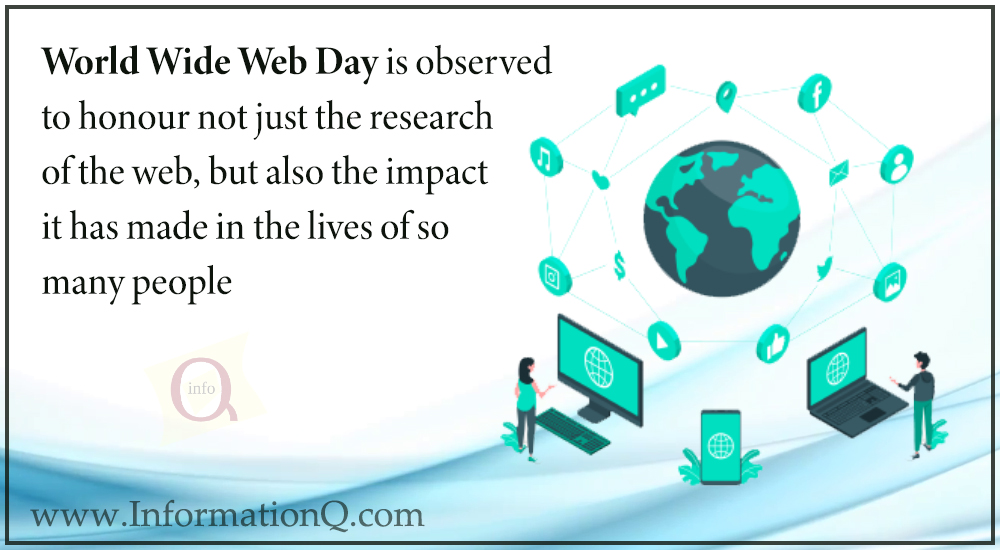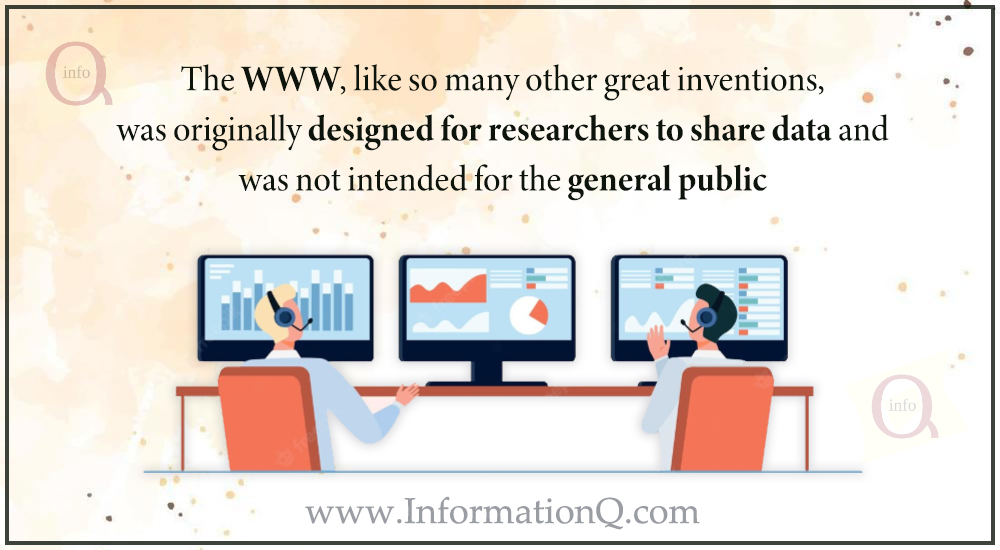World Wide Web Day is a multinational celebration of internet browsing, the virtual activity that puts the entire world at your fingers and a depth of information at your fingertips. The World Wide Web’s significance cannot be overstated. In reality, most individuals rely on the Webpages every day to get information and complete jobs. It is also essential in many vocations. As a result, it is only appropriate that we have a day to celebrate the World Wide Web, which is what World Wide Web Day is really all about.

Every year on August 1, World Wide Web Day, or WWW Day, is observed. This celebration is devoted to the introduction of the internet, its background, as well as the direction we are now taking, and all of the problems we face. Every year on World Wide Web Day, academics and professionals highlight parts of the internet that require our attention and should be explored. There are several issues that must be addressed, ranging from privacy problems associated with our digital platform to the right usage of platforms. World Wide Web Day is observed to honor not just the research of the web, but also the impact it has made in the lives of so many people. From the advantages of the internet in terms of transactions, as it provides millions with the possibility to become entrepreneurs, to its role in socializing, particularly in recent years, numerous significant positives and negatives of the web are debated on worldwide platforms on this day.



What is the World Wide Web ?
The World Wide Web, commonly known as the Internet, is a compilation of websites or social media pages maintained on web servers and linked to the user’s computer through the online platform. Text webpages, digital photographs, audio, and movies, among other things, can be found on this site. Users may access the information of these sites through the internet from anywhere on the globe using devices like computers, tablets, cell phones, and so on. Tim Berners-Lee created the World Wide Web in 1989 first at the CERN facility in Geneva, Switzerland, as a mechanism to interact with co-workers through hyperlinks. A quarter-century later, WWW has now become the primary method of human engagement, commerce, and communication, opening doors of opportunity for individuals in ways that earlier generations could not have imagined.
Read more about: World Wide Web Day
Founder of World Wide Web
The World Wide Web is a ground-breaking technology that spawned dozens of additional technologies that now control the world. Tim Berners-Lee created the WWW proposal in 1989, and it was improved with the assistance of Robert Cailliau, a Belgian bioinformatics engineer and computer scientist. They collaborated to create the Hyper Text Transfer Protocol (HTTP), which was released in early 1992. The WWW, like so many other great inventions, was originally designed for researchers to share data and was not intended for the general public. This described the key principles and specified key terminologies related to the Web. The document envisioned a “hypertext project” dubbed “World Wide Web,” in which “users” could see a “web” of “documents.”



Berners-Lee posted the first photograph in 1992. There seems to be no blocking the Webpage since then, and it has also proven to be the quickest way of communication, with nearly a billion users by the nineties. While researching at CERN, British physicist Tim Berners-Lee devised the World Wide Web (WWW). The Web was created to address the need for computerized information exchange among scientists in universities and organizations throughout the world. The WWW’s primary concept was to combine the growing technologies of computer systems, network services, and hypertext into a robust and user-friendly worldwide information system.
Top Tweets of #WorldWideWebDay:
Happy #WorldWideWebDay! We ❤️our global dev community. Where in the world are you developing? 💻🌍 pic.twitter.com/syBY8m6yeN
— Windows Developer (@windowsdev) August 1, 2019
Today is #WorldWideWebDay!
— European Commission 🇪🇺 (@EU_Commission) August 1, 2020
The Europa website was launched in 1995.
25 years later it is still the main source of information about the European Union: https://t.co/YbGquCrWd8 pic.twitter.com/Om0P89qJtG
#DidYouKnow that the World Wide Web was invented by British scientist @timberners_lee in 1989 while working at CERN?
— CERN (@CERN) August 1, 2019
For the #WorldWideWebDay, find out more about the #Web30 history: https://t.co/HWr8TXueE2 #WWWDay pic.twitter.com/L1wx6HuJS8
Let's celebrate the #WorldWideWebDay! It's been 29 years since Tim Berners–Lee came up with the World Wide Web, and now we can't imagine our lives without it 💙 #WideWebDay #Internet #www pic.twitter.com/NGd097q6xF
— NordVPN (@NordVPN) August 1, 2018
In celebration of #WorldWideWebDay, we invite you to visit our website to access free interactive tools and calculators to help you manage your money and plan for the #future: https://t.co/D5k4EE8TXM 🌎🕸 #WWWDayhttps://t.co/XJfSxXENEX pic.twitter.com/VwW6pd7fpA
— ItPaysToKnow (@FCACan) August 1, 2018
How old are these #internet companies? Take a look | @Twitter @Olacabs @Uber @Flipkart @Snapchat @facebook @LinkedIn @Google @netflix @amazon#WorldWideWebDay pic.twitter.com/QBEaHG0jwh
— Forbes India (@ForbesIndia) August 1, 2019
Leave a Reply